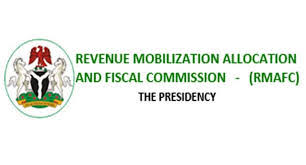Revenue Mobilisation Allocation and Fiscal Commission (RMAFC) has stated there is currently no evidence to support allegations that some state governments are diverting funds allocated to local governments.
Mr Bimbo Kolade, Chairman of the Committee on Inland Revenue Services at RMAFC, made this known during an interview in Ibadan on Monday.
He noted that although such claims are commonly heard, they remain largely unverified.
“These are mostly street stories. We hear of such claims, but there has never been concrete evidence presented to the commission that proves any specific case of diversion,” Kolade said.
He acknowledged rising public concern over the transparency of local government funding and emphasised the need for improved monitoring of allocation usage at the grassroots level.
According to him, under the current framework, local governments still receive their allocations through the state governments.
This system has frequently drawn criticism from civil society groups and development advocates.
However, Kolade explained that RMAFC’s constitutional role in the matter is limited.
“Our primary role is the distribution of revenue from the Federation Account,” he stated.
He added that the commission’s monitoring authority is restricted, especially following a Supreme Court ruling which reduced its post-disbursement oversight powers.
Despite this limitation, Kolade said RMAFC continues to offer advisory support to local governments, particularly in improving their Internally Generated Revenue (IGR).
“We regularly advise local governments on how to diversify their economies and increase revenue, especially in sectors like agriculture and solid minerals,” he said.
Kolade also referenced the Supreme Court’s 2023 ruling that mandated local governments receive allocations directly from the Federation Account.
“Although the Supreme Court made that ruling some time ago, local governments are still not receiving funds directly. They still get their allocations through the states,” he noted.
He explained that the implementation falls under the purview of the Federal Ministry of Finance, working through the Office of the Accountant-General of the Federation and the Federation Accounts Allocation Committee (FAAC).
“Implementation has been delayed by various issues, including resistance from the Nigerian Governors’ Forum and administrative bottlenecks like the requirement for each local government to open an account with the Central Bank of Nigeria,” he said.
Kolade stressed the importance of establishing a clear and transparent mechanism to ensure local governments not only receive their funds but also use them effectively to improve grassroots development.
He urged local governments to reduce their dependence on federal allocations and take advantage of their unique natural and economic assets to boost IGR.
“For instance, in Oyo State, out of the 33 Local Government Areas, about 26 are agrarian and can explore agricultural partnerships and solid mineral development to strengthen their economic base,” he said.
Despite limited enforcement powers after disbursement, Kolade affirmed RMAFC’s ongoing commitment to promoting accountability and fiscal discipline at all levels of government.
(NAN)


